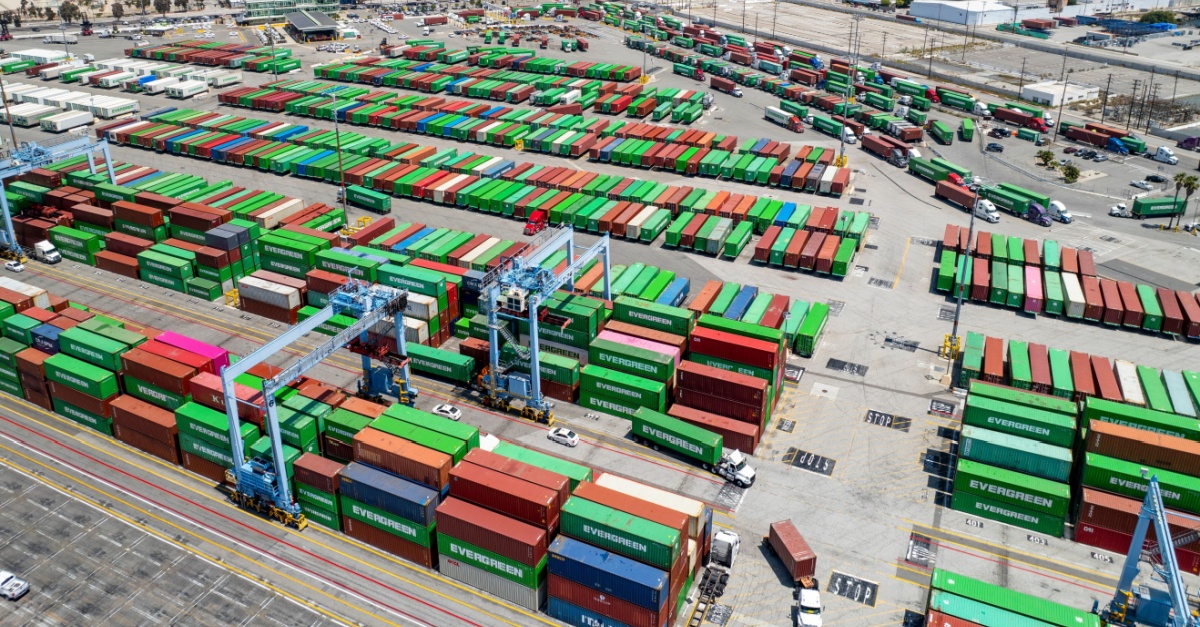Who doesn’t love movies? If that person exists, I have yet to meet him or her. But when you turn on HBO or Netflix or, less often these days, go out to an actual theater, chances are you’re not wondering how that set got hauled to the shoot location – unless of course, you happen to be someone responsible for making sure that happens. Then it might possibly become more engrossing than the plotline of, say, “3-Body Problem” or “Better Call Saul.”
As in many other specialized areas such as cold chain or aerospace and defense, film production logistics takes particular expertise and a refined process to ensure everything arrives when and where it’s supposed to. It’s also a highly complex endeavor, with oversized and sensitive equipment such as cranes, set pieces, dollies, props and cameras, and actors’ trailers requiring special care.
It’s easy to imagine how quickly costs can escalate if equipment or set materials are delayed at a shoot location, as film productions run on very tight schedules. Since locations can be virtually anywhere, including out-of-the-way places, tight coordination of transportation modes, carriers, and routes is critical.
The Challenges of Shipping Film Equipment
There are so many moving pieces in film production, including securing local approval for shoots, set construction, and camera and sound setup, that there is very little margin for error in logistics timelines. Also, very sensitive, expensive high-technology gear is being packed, secured, moved, and put in place – then repacked, secured, and shipped to the next shoot location.
Also consider the reality of film economics, with set design and construction alone representing as much as 25% of total production costs. At an average budget of $65 million for a feature film, that’s $16.25 million.
There’s a great deal of coordination that takes place between a film or show’s location managers, logistics coordinators, production managers, and assistant directors. Production managers and logistics coordinators in particular in turn need to work closely with third-party logistics (3PLs), freight carriers, and other service providers to plan and execute the transportation and setup of location shoots.
The variety and number of location shoots, which can total dozens of far-flung locales, also add a layer of complexity to film production logistics. This calls for an experienced, highly flexible logistics partner that can coordinate and oversee every detail of transporting production equipment and supplies.
Ensuring the Safety and Timeliness of Shipments
Considering some of the main elements of movie and film production equipment, much of it heavy, bulky, and sensitive, as well as expensive, the logistics calls for not only a high degree of precision but great care in packing, securing, and shipping. Here are a few examples:
- Cranes and jibs are used to position cameras for high, sweeping shots that create a stunning visual effect. They’re also large, heavy pieces of equipment that have to be carefully secured to flatbed trailers for transport from set to set.
- Generators provide a source of uninterrupted power to all the electrical equipment used on a set: cameras, recording gear, sound equipment, lighting, etc.
- Speaking of, equipment ranging from spotlights to LEDs, plus panels and gels for diffusing lighting, aids cinematographers in getting that just-right look for a scene in a particular location.
- Sound equipment including boom microphones, recorders, amplifiers, monitor speakers, and mixing consoles are used on the set to ensure the perfect capture and reproduction of every audio element.
- While ideally filmmakers can work with existing structures at a location, set construction – miniature to actual scale – is often involved to create a genuine look and feel for a number of shots.
For all of these equipment and supply elements, a production company or studio needs to partner with a logistics provider well-versed in the specialized aspects of packing, securing, shipping, and staging these pieces. A strong network with established carrier relationships, and knowledge of route optimization and matching loads to modes, is also called for.
Often, especially with major blockbusters like the “Mission: Impossible” franchise, film production calls for international as well as domestic location shoots. A 3PL must know the nuances and regulations involved in cross-border shipping, including customs clearance, regulatory compliance, and navigating inbound and outbound port logistics.
Leveraging Expertise in Film Logistics
Partnering with a logistics provider that is knowledgeable about film and television productions is crucial as it has such unique demands. These include tight production schedules, handling delicate, expensive and bulky equipment, and coordinating shipments to location shoots.
This kind of specialized expertise, and a peerless track record of logistics excellence, is needed to ensure secure, timely delivery of every piece of equipment and each set element. Detailed strategic planning, in close consultation with production heads, covers every aspect of packing, transport, setup, and breakdown. Any shipment delay has the potential to disrupt the production schedule, impacting the entire cast and crew and causing budget overruns.
What Happens Behind the Camera, Including How It’s Shipped, Makes All the Difference
A shopper will often bail on an e-commerce seller that doesn’t have a promised item in stock when it’s ordered. In the same way, impatient viewers may tire of waiting for the delayed release of season X and find an alternative on the endless menu of digital entertainment options.
Considering the complex logistics of film and television production, and the low margin for error, companies can’t afford to run the risk of choosing a 3PL partner that will let things spin sideways.
Wicker Park Logistics understands the exacting demands of the film and television industry and has the know-how to handle its complex shipping requirements, including over-dimensional freight. With more than 50 years of leadership in logistics, Wicker Park offers a range of transportation modes (FTL, TL, hotshot, expedited, dedicated, intermodal, etc.) backed by its technology platform and expert team. Flexible service and shipment options are available based on your specific needs. Speak to an expert today.















